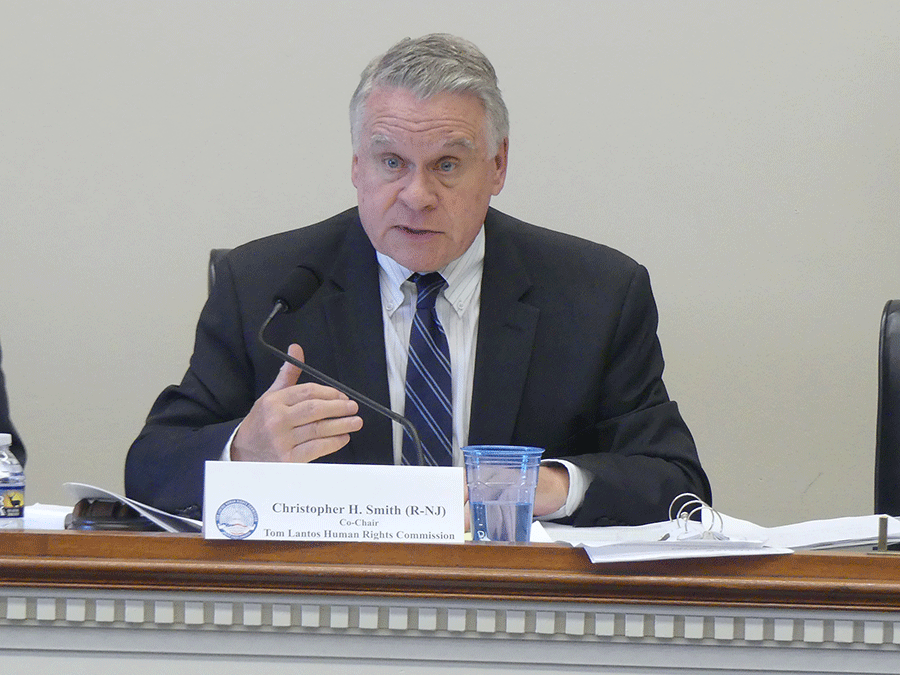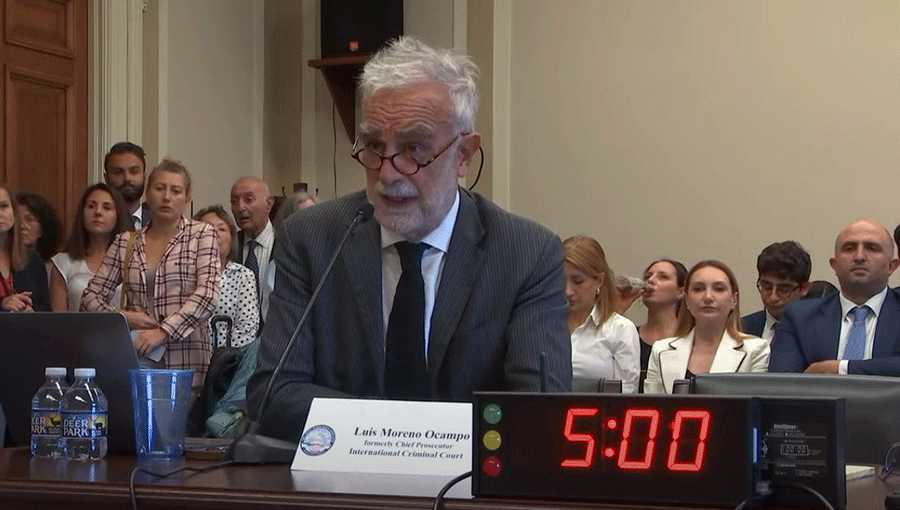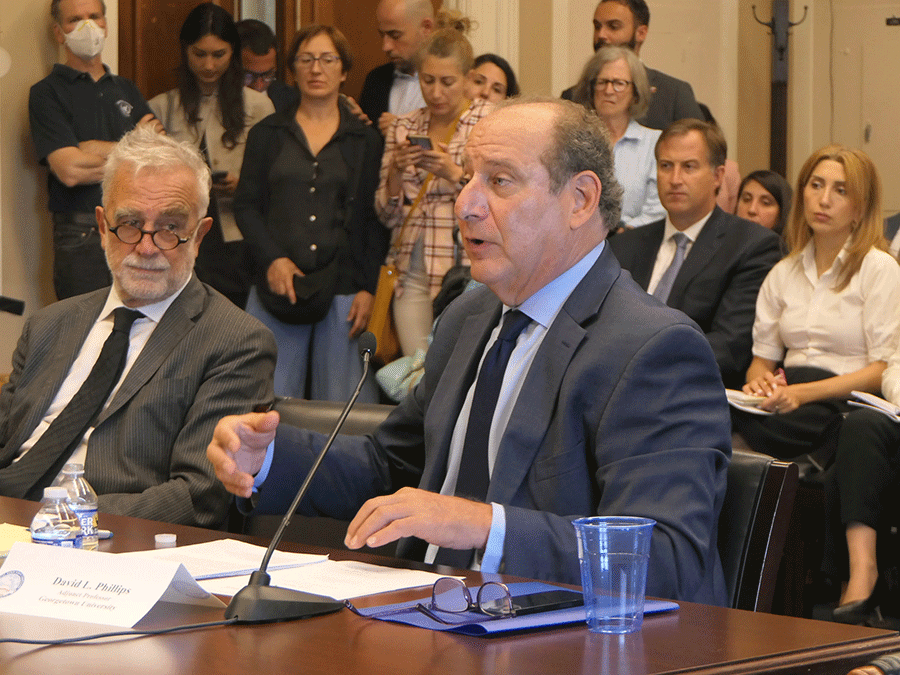Tom Lantos Human Rights Commission Demands Aliyev Be Held Accountable For Genocidal Intent
WASHINGTON, D.C. – The Congressional Tom Lantos Human Rights Commission held an emergency hearing on the ongoing blockade of Nagorno-Karabakh’s Lachin Corridor on Wednesday, September 6, 2023, emphasizing the deteriorating conditions on the ground in Artsakh, and the ongoing humanitarian crisis, reported the Armenian Assembly of America (Assembly). Representative Christopher H. Smith (R-NJ), Co-Chair of the Commission, recommended holding Azerbaijan’s President Ilham Aliyev accountable for his genocidal intent, and stressed the need for new legislation, including the “Nagorno-Karabakh Human Rights Act.”
The hearing featured testimony from Luis Morena Ocampo, former prosecutor of the International Criminal Court, and David L. Phillips, Adjunct Professor at Georgetown University and Director of Columbia University’s Program on Human Rights and Peace-building and the Atrocities Artsakh Project. In addition, the Assembly also submitted testimony.
In his remarks, Rep. Smith noted that “120,000 ethnic Armenians have been sealed off from food and medicine and are being starved to death by the government of Azerbaijan…the starvation process has been advancing at a terrifying rate.”

Rep. Christopher H. Smith (R-NJ), Co-Chair, Tom Lantos
Human Rights Commission
He underscored that Azerbaijan’s illegal blockade of the Lachin Corridor is a “crime of genocide that was planned, tested and imposed by… President Aliyev, who rules Azerbaijan with an iron fist as a dictator.”
Rep. Smith announced that a Nagorno-Karabakh Human Rights Act will soon be introduced in order for the Legislative and Executive branches to speak out “boldly and accurately” about the intent of genocide occurring in Artsakh.
Tracing the history of Armenians in Nagorno-Karabakh back 2,000 years, he stated that Armenians have “defended and governed themselves” since their independence in 1994, with an ability to be “connected to the outside world by the Lachin Corridor, as per international agreements.”
In light of its illegal and unjustified blockade of the Lachin Corridor, Rep. Smith expressed that “the government of Azerbaijan..seeks to fully integrate Nagorno-Karabakh into Azerbaijan…[which is] totally and absolutely unacceptable to achieve that through genocide.”
“I respectfully urge the Administration to please wake up, recognize the absolute grave responsibility it has here and focus on finding and implementing a humane situation now and this must mean that the blockade is lifted and the people continue to live in their ancient homeland,” he concluded.
During his testimony, Ocampo followed up on his Expert Opinion released on August 7, 2023, where he stated that “there is a reasonable basis to believe that a Genocide is being committed against Armenians living in Nagorno-Karabakh in 2023” and emphasizing that under the Genocide Conventions all states have a “duty to prevent” genocide.

Luis Morena Ocampo, former prosecutor, International Criminal Court
Ocampo once again emphasized that a genocide is “happening now” and clarified the misconception that genocide requires mass killings to be defined as such.
“There are different forms to committing genocide,” said Ocampo. “The crime can be to create the conditions of genocide.” He noted that blocking the Lachin Corridor and not allowing essential goods to reach the Armenian people is “creating the conditions of genocide under Article 2(c) [of the Convention on the Prevention and Punishment of the Crime of Genocide].”

Ocampo said it was “easy” to come to a conclusion regarding genocide due to the ICC’s ruling in February 2023 that Azerbaijan must open the Lachin Corridor.
“Fifteen judges on the ICC in The Hague reviewed the issue after listening to Armenia and Azerbaijan representatives and they concluded that blocking the Lachin Corridor was creating an imminent risk for the life of Armenians living in Nagorno-Karabakh,” said Ocampo. “The material element of genocide was obviously there.”
Ocampo emphasized that the “urgency is to prevent the harm” and stop genocide. He expressed the importance of the special hearing because the “first step is to remove the denial.”
“This [hearing] could be a turning point on denial,” said Ocampo, who recommended to the Commission that information is sent to the Executive Branch to indicate the urgency of the matter.
https://www.youtube.com/watch?v=B7w9yyj2sA8&t=1145s
He opined that the U.S. shouldn’t be involved in negotiations when “Aliyev uses genocide as a method of the negotiation,” because then the U.S. can be “considered complicit.”
“Stop the denial, recognize the [genocidal intent], and protect the lives of the 120,000 Armenians in Nagorno-Karabakh,” he concluded.
|
|

























































